Phensedyl Smuggling: Pouring in unchecked
The smuggling of Phensedyl through various border points appears to be rising with alleged relocation and reopening of some factories in India.
The flow of this drug into Bangladesh had declined after the Indian health ministry banned it on March 11, 2016. The authorities reportedly had closed down factories in the bordering districts of India though production of the cough syrup actually never stopped.
In recent years, narco syndicates have started manufacturing this contraband in factories relocated deep into the Indian state of Bihar from bordering areas, according to intelligence sources.
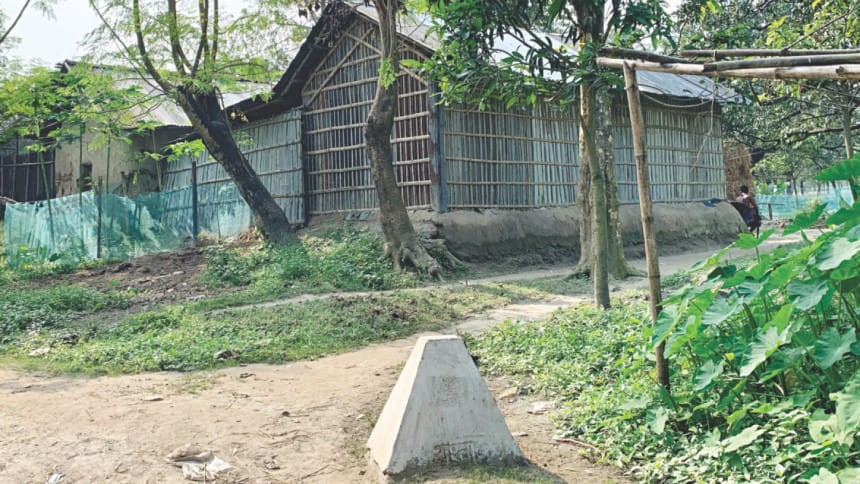
Law enforcement officials in Bangladesh say they have come to know about some Phensedyl factories that resumed production. Their knowledge of possible locations of the factories have been communicated to Indian counterparts.
According to two narcotics dealers in Chapainawabganj, a district bordering Murshidabad and Maldah in West Bengal, the price of 100 bottles of Phensedyl was Tk 20,000 to Tk 24,000 before the shutdown of factories in Indian border areas in 2016.
But the price went up after the factories were relocated and reopened, they said. It is now Tk 28,000 to Tk 30,000 for one hundred bottles.
“We do not know the exact locations of the factories but the bottles are now mainly coming to Bangladesh from North 24 Parganas, Murshidabad and Maldah of India,” said one of the dealers.
“Most probably, this Phensedyl was not produced in any of these districts in West Bengal as we have found ‘Made in Bihar’ written on the labels.”
According to Bangladeshi intelligence agencies, around 38 Indian nationals of Maldah and Murshidabad are now involved in Phensedyl trafficking.
They gather the bottles in some houses near the border. Once the order is confirmed, they push those into Bangladesh, sources added.
AFM Masum Rabbani, director (operation) of the Department of Narcotics Control (DNC), said the smuggling of the codeine-based syrup recently increased but they have already taken necessary steps to combat the menace.
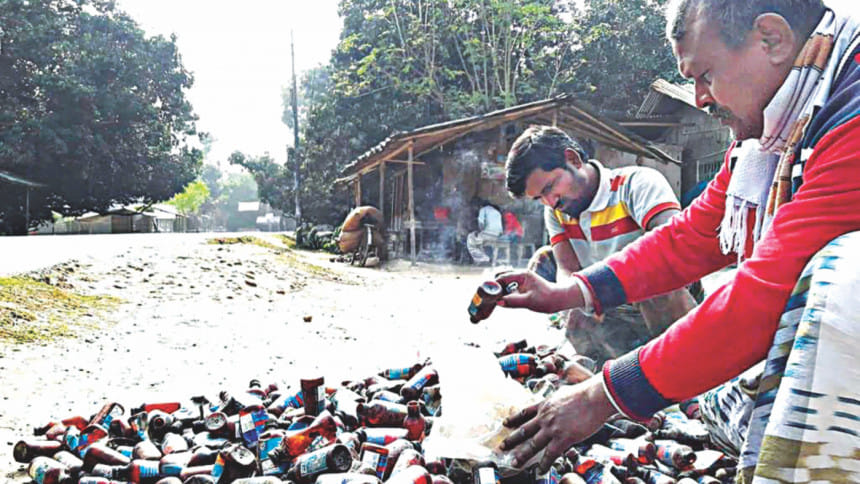
A DNC report says phensedyl and other drugs are entering the country through 58 border points.
Jamal Uddin Ahmed, director general of the DNC, told The Daily Star on January 16 that there have been signs of rise in phensedyl smuggling in recent years.
“We have already informed this to the Indian authorities and requested them to take necessary measures.”
Asked about the reasons behind the rise in Phensedyl flow, he said they have found that the majority of narcotics users in Bangladesh are habituated to taking multiple drugs.
“As the supply of yaba has come down due to law enforcers’ stepped-up vigilance, the smugglers are trying to have a grip on the market with Phensedyl,” he said.
Lt Col Md Mohiuddin Ahmed, director (operation) at Border Guard Bangladesh (BGB) Headquarters, echoed the same.
He admitted that phensedyl smuggling has never been stopped completely and that the supply has slightly increased recently. “But we are on high alert and taking strict actions against narcotics,” he added.
According to the home ministry data, 5.66 lakh bottles of Phensedyl were seized in 2016 and 8.70 lakh the previous year.
In 2017, the seizure rose to 7.10 lakh bottles, and 7.15 lakh the next year. The recovery crossed 7.80 lakh bottles in the first ten months of last year.
Last month, the BGB recovered 40,741 bottles across the country, says a press release of the paramilitary force.
On the other hand, around 25 lakh yaba tablets were recovered by all law enforcement agencies in 2018. It was six lakh pills in the first six months of last year.
Sources say the yaba tablets are available in different areas of Dhaka but the open sale of the mad drugs mostly stopped after law enforcers started an anti-narcotics crackdown in May 2018.
Yaba syndicates are adopting different strategies that include operating online and using mobile phones for sale and delivery.
[Our Chapainawabganj correspondent Rabiul Hasan Dollar contributed to this report]

 For all latest news, follow The Daily Star's Google News channel.
For all latest news, follow The Daily Star's Google News channel. 

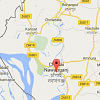
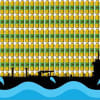

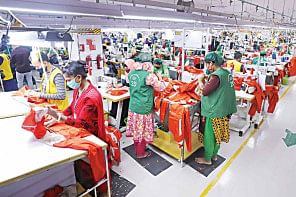
Comments